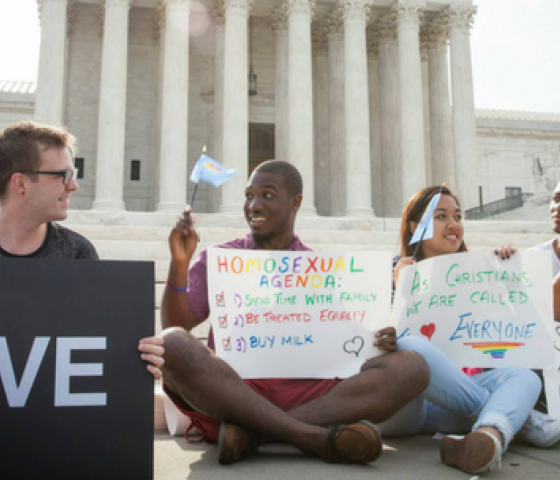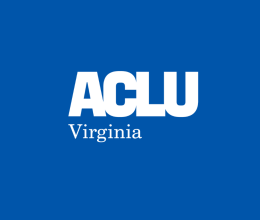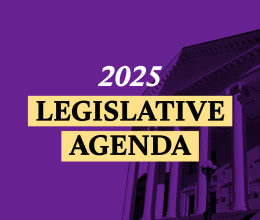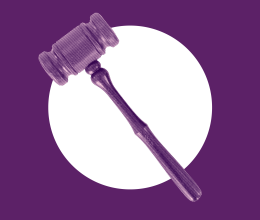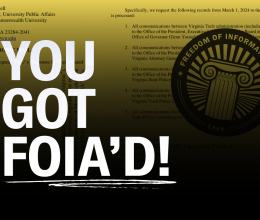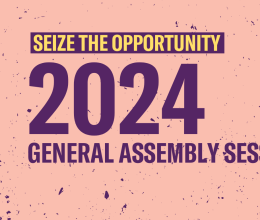 The current presidential election cycle has already shown itself to be one marked with protests, volatile rhetoric and violence.
The current presidential election cycle has already shown itself to be one marked with protests, volatile rhetoric and violence.
Images of protestors and counter-protestors being dragged out of campaign rallies have dominated the media. As the primary season moves towards conventions and the general election begins, the ACLU of Virginia will be monitoring protest activities in Virginia to ensure First Amendment rights are protected and people are not subjected to discrimination by police or political officials.
Virginia is a political swing state and candidates undoubtedly will plan more rallies in the Commonwealth as the November election nears. Many rally attendees may not know the full scope of their rights in Virginia. Additionally, many may be visiting from states that have additional protections against discrimination that Virginia does not have. It is important to distinguish what protections are afforded by federal law and what protections, or lack of protections, are afforded by Virginia.
The First Amendment of the U.S. Constitution guarantees the right to protest and demonstrate in public. This right is also guaranteed to counter-protesters who may choose to show up to a rally. However, depending on the circumstances, the rights of the rally organizers may trump the rights of protesters.
First, if a campaign rally is by invitation only and held on private property, the organizers have a right to exclude whomever they choose. Even if the rally is held in a public space or is open to the public, organizers have a right to exclude protestors, or anyone who brings an opposing opinion or counter-message. Courts have routinely found that organizers of a rally have the right to control their own message. Most often, organizers rent space for rallies and gatherings, which gives them the right to exclude disruptive people for “trespass” and enlist local police to eject such people.
There is a caveat, however. If the rally welcomes the general public, even if it is held at a private location, organizers must abide by anti-discrimination, “public accommodation” laws. Title II of the Civil Rights Act of 1964 prohibits discrimination in public accommodations based on race, color, religion, national origin. The Americans with Disabilities Act (ADA) prohibits discrimination based on a disability. For many states, this protection is expanded through state law to include prohibitions on discrimination based on sex, sexual orientation, gender status, veteran status and even sometimes age and political affiliation.
Clearly, then, a campaign cannot ban all Muslims from its rallies. However, public accommodation laws are less clear in Virginia when it comes to discriminating against women or members of the LGBTQ community.
The Virginia Human Rights Act (VHRA), on its face, seems to ban discrimination in public accommodations against a long list of individuals including “sex, pregnancy, childbirth…” and so forth. But the law doesn’t provide a private cause of action for those facing discrimination. The VHRA only states that it is the “public policy” of Virginia not to discriminate but offers no real remedy to women and members of the LGBTQ community. Individuals could possibly rely on local anti-discrimination ordinances to seek a remedy, but only a handful of local ordinances expand this protection.
So, effectively, a campaign could host a rally in Virginia and potentially deny access to anyone organizers thought was gay, lesbian, or bisexual. They could turn away anyone they thought to be transgender. They could even eject women without any fear of a lawsuit.
In 2016, with a female candidate for president of the United States, this lack of protections in Virginia is embarrassing but real. Aside from monitoring rallies this election season, the ACLU of Virginia will continue to fight to correct this injustice.
Women and members of the LGBTQ community should not fear being singled out and told they cannot enter a place that is allowing others to attend. That sort of stigma is especially harmful, given Virginia’s history of segregation.
In any case, if you choose to participate in a public rally or demonstration this election season, it is critical that you Know Your Rights!
NEW
Federal court rules transgender middle schooler can play
